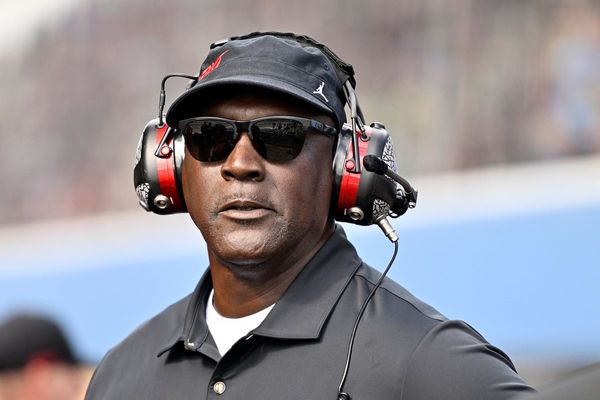Georgia was once considered a post-Soviet success story. After years of authoritarian rule, followed by independence which brought near state collapse, corruption and chaos, Georgia appeared to have transitioned to democracy.
In a period after independence in 1991 and before 2020, elections were regularly held and were deemed mostly free and fair, the media and civil society were vibrant and corruption levels had diminished significantly.
The “Rose revolution” in 2003 ushered in an era of unprecedented reform and suggested a move towards democracy and a closer relationship with the west. Georgians were full of hope for the country’s future, and prospects of joining the European Union – or at least moving closer to Europe.
Fast forward two decades and Georgia has fully returned to authoritarianism. Six opposition leaders are in prison or facing charges and now thinktank leaders are being targeted with investigations that could land them in prison. Typically these charges centre around accepting foreign funding or criticising the government.
Get your news from actual experts, straight to your inbox. Sign up to our daily newsletter to receive all The Conversation UK’s latest coverage of news and research, from politics and business to the arts and sciences.
In moves in line with other authoritarian regimes around the world, opposition organisations such as thinktanks are being told to produce financial documents in short timeframes, and accused of financial mismanagement and threatened with prosecution if they don’t.
In May 2024, Georgia passed a Russian-inspired foreign agent law — which would require non-governmental organisations (NGOs) receiving foreign funding to register themselves and face restrictions. Protests erupted each time Georgia’s parliament debated this measure, but eventually the pro-RussianGeorgia Dream party prevailed. More than 90% of NGOs receive funding from abroad, so the new law cripples the efforts of some 26,000 of them.
Many Georgians were outraged that the passage of the bill may end dreams of one day becoming a European Union candidate country. Regular surveys have found that about 80% of Georgians have aspirations for their country to join the EU.
Though Georgia faces a host of economic problems, the Georgia Dream party has campaigned on delivering a return to traditional values. Like Russia they have also passed a series of laws in 2024 that target the LGBTQ+ community, such as banning content that features same-sex relationships and stripping same-sex couples of rights, such as adoption.
Parallels with Russia?
Georgia Dream also passed legislation making treason a criminal offence, a clear attempt to eliminate political opponents. Any insults of politicians online are also considered a criminal offence.
Also, in June of this year civil society organisations in Georgia received court orders requiring them to disclose highly sensitive data. Meanwhile, members of the Georgia Dream party were accused of assaulting opposition party leader Giorgi Gakharia suffering a broken nose and a concussion, which they denied.
In another effort to exercise greater control over the state, since the beginning of this year more than 800 civil servants have been dismissed. Similar to the purges that took place in Turkey — this is not being done in the name of efficiency, but to ensure that the bureaucracy is loyal to wishes of the Georgia Dream government.
This hasn’t happened overnight, as the laws had already changed several times to weaken legal protections for civil servants.
During its time in government, the Georgia Dream party has moved the country much closer to Russia, often by portraying the nation as locked in a cultural struggle against the west. Despite this, 69% of Georgians still see Russia as Georgia’s main enemy, up from 35% in 2012.
Though the Georgia Dream party faces increasing public opposition to its rule, it gained nearly the same amount of votes in the 2024 elections as it did in 2012 – when it was at its peak of popularity. The election result in October 2024 may be partly explained by accusations of fraud and other irregularities.
How did this happen?
One of the first big threats to Georgia’s democracy came in August 2008 when Russia invaded the country to offer support for two breakaway regions in South Ossetia and Abkhazia which declared themselves independent from Georgia. The international community did little to censure Russia, giving Russian president Vladimir Putin the confidence to engage in further acts of aggression.
Russia has maintained troops in South Ossetia, only about 30 miles from Georgia’s capital Tbilisi, and continues to play an important role in Georgian politics, undermining democracy.
The next threat came from within. Billionaire Bidzina Ivanishvili was elected prime minister of Georgia in 2012 as the leader of Georgia Dream. despite the fact that he officially stepped down from this position in 2013, he has wielded power behind the scenes and is still widely considered to be the de facto leader of Georgia.
Though Georgia did not immediately slide towards autocracy under the Georgia Dream party, today there are few remnants of democracy left. The major opposition parties are banned, opposition politicians and journalists are spied on, and protests are repressed by the police.
Cameras are now installed on the streets of Tbilisi as part of a crackdown on protest and fines for protesting have increased. Elections are no longer considered to be free and fair by the European Union and others as the Georgia Dream party uses its access to the state resources to dole out patronage to its supporters and intimidate voters.
In just over two decades, Georgia has managed to plunge back to authoritarianism. Once hailed as a beacon of democratic reform, the country is now gripped by a Russian-influenced ruling party that has consolidated power through repression, surveillance and manipulation.
But while the Georgia Dream party has tried to dismantle the country’s democratic institutions, support for resistance is high. According to a poll in 2025, more than 60% of respondents supported protests against the government and 45% identified as active supporters. And 82% feel Georgia is in crisis, with 78% blaming Georgian Dream.
It appears that Russia may have succeeded in undermining democracy in Georgia, but not in shaping hearts and minds.
Natasha Lindstaedt does not work for, consult, own shares in or receive funding from any company or organisation that would benefit from this article, and has disclosed no relevant affiliations beyond their academic appointment.
This article was originally published on The Conversation. Read the original article.







